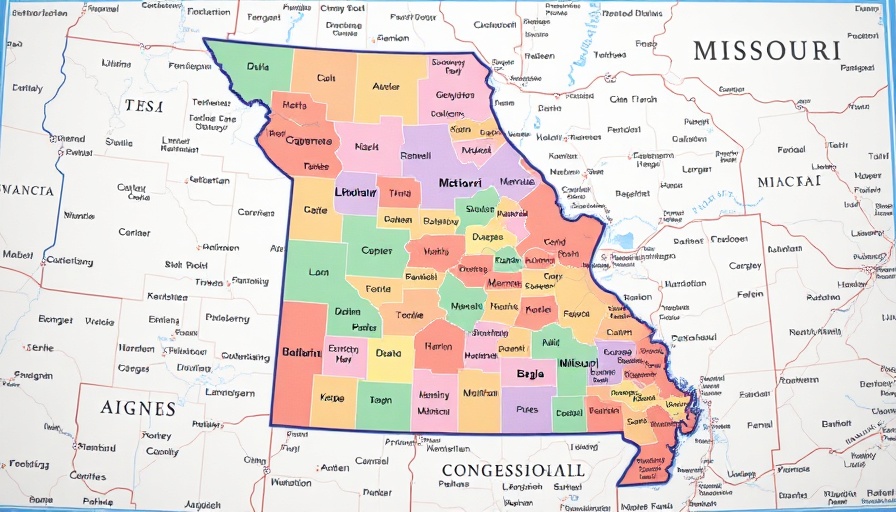
Gov. Kehoe's Budget Dilemma: A Balancing Act for Missouri
As the deadline looms for Missouri Governor Mike Kehoe to finalize the $52 billion state budget proposal, the pressure intensifies. With only a few days to make critical decisions, Kehoe faces the daunting task of balancing fiscal responsibility against the pressing needs of residents across the state.
What's at Stake? Education Funding and Local Future
One of the most significant components of this year's budget is education. Kehoe has indicated that he might support a staggering $4.2 billion allocation to fully fund the K-12 education formula—an amount that far exceeds previous years and directly impacts local schools and education services in St. Louis. This increase plays a crucial role in personalizing education to meet the diverse needs of students and helping schools navigate not only financial challenges but also rising costs associated with teacher salaries and childcare programs.
Local Schools Are Counting on It
St. Louis public schools, like many others across Missouri, rely on state funding to maintain and elevate educational standards. With Kehoe’s promise to potentially back the proposed funding, local parents and educators are hopeful. However, some are wary—concerns pinch as educators strive to address teacher shortages and improve conditions in the classroom. What does this mean for your local schools? More resources could translate into better teacher retention, classroom supplies, and pedagogical strategies that foster student success.
A Conservative Approach: Budgeting for the Future
Despite the promising allocations for education, Kehoe emphasizes a conservative approach to budgeting. He remarked, "Just because we have the money doesn’t mean we need to spend it." This highlights a pragmatic mindset focused on ensuring Missouri's future economic stability. As uncertain times loom over the horizon, Kehoe’s prudence suggests a measured strategy reflective of the needs of St. Louis residents, urging policymakers to remain prepared for potential budgetary challenges.
Implications of Federal Decisions on Local Budgets
Washington politics also plays a pivotal role in Kehoe's decision-making process. The uncertainty surrounding President Trump’s proposed tax cuts and potential reductions in Medicaid funding adds another layer of complexity to Missouri’s budgeting process. Kehoe noted, "The timing of that bill might not match the timing of when we have to sign off on our budget, so that’s another complicating factor right now going into what we’re doing on the budget." As citizens of St. Louis, it is vital to remain informed about how federal decisions can ripple down to state budgets, ultimately affecting local healthcare services and educational initiatives.
Celebrating Local Initiatives and Community Backbone
In the spirit of community, the legislature has allocated funds not just for education but also for community-focused areas like childcare, early childhood education, and even preparations for the anticipated 2026 FIFA World Cup in Kansas City. These initiatives stand to bring tourism and development opportunities to neighborhoods within St. Louis, potentially giving a boost to local restaurants and small businesses. This calls for the community to come together and utilize these resources effectively, fostering an environment that promotes growth and collaboration.
What Community Members Can Do
For St. Louis residents eager to ensure their voices are heard, now is the time to engage with local leaders. Attend city council meetings, or reach out to representatives to discuss the proposed budget and its impact on local initiatives. Suggest ways your community can utilize the anticipated funding effectively. Remember, every voice contributes to shaping the future of Missouri, and an informed citizenry is the backbone of a thriving democracy.
Final Thoughts: What Lies Ahead for St. Louis
As Governor Kehoe edges closer to making decisive budgetary choices, the impacts will touch every corner of the state and, particularly, St. Louis. From the vitality of local schools to the sustainability of community businesses, each decision carries weight. With opportunities on the horizon, it is crucial that the voices of St. Louis residents amplify the call for responsible and responsive governance.
 Add Row
Add Row  Add
Add 




Write A Comment